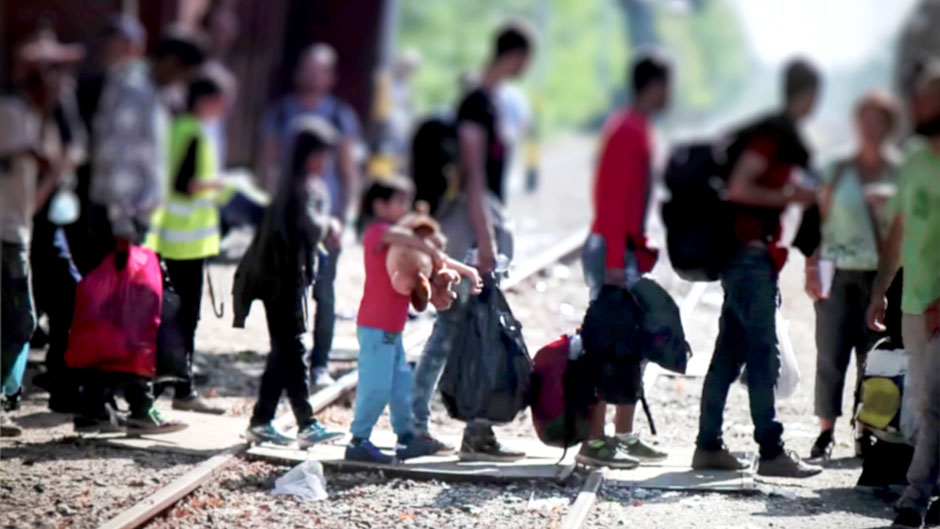A six-year-old girl sobs when she is separated from her mother at the U.S.-Mexican border.
A 12-year-old has nightmares of the time she saw a man shot and killed.
A young boy cries remembering his best friend, whom he may never see again.
These are some of the traumas lived by immigrant children. Leaving one’s country, family members, friends and familiar surroundings can be stressful for anyone. But for the very young, coping with loss and violence can be traumatizing. Research has shown that children separated from their parents—such as the ones seen recently in news reports—are at high risk for emotional problems and developmental delays.
But there are also other emotional scars that manifest themselves in physical ailments that, if left untreated, can turn into serious illnesses that can last a lifetime.
And that is what Ashley Marchante-Hoffman, a University of Miami Ph.D graduate in clinical psychology, investigated in a year-long dissertation study: “Giving Voice to Underserved, Foreign-Born Latino Youth: Trauma, Stress and Health in the Primary Care Setting.”
Although decades of research has shown the negative mental health effects of trauma on children, little is known about the link between trauma and present physical complaints for immigrant children, said Marchante-Hoffman. She began her work at the UM Pediatric Mobile Clinic in 2016 during a clinical rotation. The clinic is a large blue bus that provides outreach and medical support to children throughout Miami-Dade County in neighborhoods like Homestead, Hialeah, Westchester and Little Haiti.
“I noticed that children were coming in to their primary doctor complaining of headaches, stomachaches, sleep problems and the link between traumatic experiences and physical symptoms was not always made,” she said.
She decided to conduct a study where she surveyed 152 children, ages 8-17, and 142 parents. All the participants were immigrants. Close to 70 percent of those surveyed were Venezuelans escaping a violent political and economic crisis in their home country that had left many dead and wounded. The remaining 30 percent came from various Central American countries, Mexico, and the Caribbean, she said.
“Over 70 percent of the kids said they had experienced at least one traumatic event such as being separated from a family member or being exposed to violence in their community,” said Marchante-Hoffman.
For example, one young girl who had been exposed to multiple acts of violence—including watching family members killed and physical assaults of her immediate family—came to her primary care doctor with complaints of anxiety and physical pain. She was immediately referred to a psychologist within the clinic, said Marchante-Hoffman.
This is why integrating psychological care into primary care clinics that treat the underserved is important, Marchante-Hoffman said, because many Hispanic families in particular shy away from getting psychological help.
“To some it is a stigma, but for others it is a lack of resources or a language barrier,” she said.
Marchante-Hoffman said that providing psychological treatment to children is crucial so that aches and pains that could be temporary do not turn into major physical problems later on. For instance, she said, children who are experiencing sleeplessness can develop more serious sleep disorders if they do not receive treatment.
Marchante-Hoffman received the 2018 Barrett Prize for her dissertation by UM’s Institute for Advanced Study of the Americas. In awarding her the prize, the committee said they were impressed with her “ability to ethically reach and examine a ‘vastly understudied’ population.”

